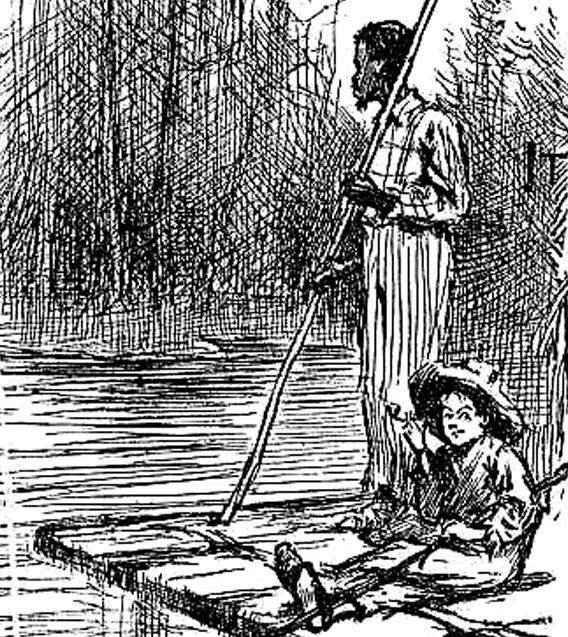
Huckleberry Finn
CONLEY COMMENTARY (WSAU) – Mark Twain’s The Adventures of Huckleberry Finn uses the n-word 219 times. For that, it’s considered unacceptable reading for schoolchildren.
It’s their loss. Mark Twain’s novel is one of racial redemption, not bigotry.
Huckleberry Finn’s father is a drunk. He’s sent to live with his aunt in Missouri, a slave state. And many of the rich white families own slaves to tend their houses and to work their fields.
Huckleberry Finn becomes friends with Jim, Miss Watson’s slave.
Huck doesn’t want to go to school or be raised by his straight-laced aunt. He decides to run away. Jim runs with him, in part to watch over Huckleberry and in part hoping for his own freedom if they reach Illinois. While rafting on the Mississippi River, Huck realizes that everything he’s ever been taught about black folks is wrong. He’s told that slaves are stupid; Jim isn’t. He’s been taught that slaves are closer to animals; Jim is fully human.
And Huck realizes that they are facing unequal risk as they paddle along the river. He is running away for adventure. But Jim’s life is in danger. He will be whipped or branded or killed if he’s caught.
The villains are Huck’s drunk, sadistic father and his ninny-aunt and the other busy-bodies of Hannibal, Missouri who think nothing of owning other human beings. Their minds are so set that they no longer even think about their colored chattel. The novel teaches us that superficial differences – like the color of one’s skin – do not diminish our humanity.
Surely that’s a lesson that kids today should learn. But Mark Tawin’s language of 1884 is too rough for today’s woke ears. And our children are poorer for it.
I’m Chris Conley.



Comments